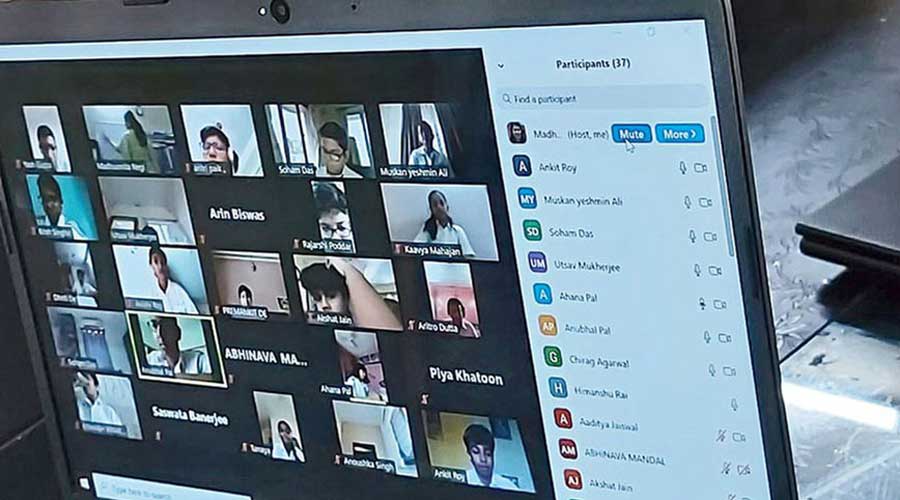Jotting down the positives every day and not dwelling on when the pandemic will end but adapting to changing demands can help kids deal with stress triggered by staying indoors, speakers at a workshop said on Thursday.
Ishita Sanyal, a clinical psychologist and mental health activist, said she had found children enjoyed unsupervised online sessions with friends in the absence of parents and teachers.
Allowing children the freedom to chat with friends between online classes, similar to what they enjoyed during breaks in school will help them cope with stress, she said.
Sanyal, however, said there were many people who were unable to deal with stress and that spelling out strategies would help them. “There are many positives emerging from staying indoors. I often tell people to write in a diary the positives that emerge before them every day,” she told Metro. “Jot down what you feel are the positives of staying at home… remember them to feel happy in this atmosphere of gloom around us.”
The workshop on coping with stress during the pandemic was organised by the US Consulate General Kolkata, in association with Turning Point, Calcutta, and Eastside Institute, New York.
Sanyal, the founder-director of Turning Point, an organisation which works with specially-abled children, spoke about the strategies adopted at the centre.
On Fridays, students of Turning Point are allowed to chat with each other online and none from Turning Point supervise these sessions, she said. “Some parents told me that children chat for hours during these unsupervised sessions. They love it. They are again bonding with friends, something that had stopped when physical assembly at the centre had stopped because of the pandemic.”
All schools can try such a strategy to let children bond better with friends and peers, “essential for the mental well-being of children”, Sanyal said.
Forced to drop plans of pandal-hopping this year, teachers at Turning Point have asked students to enact the roles of Durga and her family as part of the strategy to cope with the change. There will be other cultural programmes, but students will participate online.
Father Rodney Borneo, the principal of Loyola High School at Ekbalpore, was another speaker at the workshop. He said he always told people “this too shall pass” whenever someone complained of becoming restless. “I tell everyone this too shall pass. We have not been created to deal with the pandemic; we have been created for a greater purpose.”
Kirandip Kaur, a student of Asian International School, said at the workshop people would do better to stop thinking when the pandemic would be over. “The more we think of it as something that will pass, the more we will resist changes. It is better if we accept the present and adapt ourselves to it.”
A good number of people have adapted to the changed situation but there are many who are struggling when it comes to dealing with the fear of the disease and the stress. Many of these people are invisible; they are in their homes, Sanyal said.
“Someone needs to reach out to them with the strategy of coping with stress. This is why it will be beneficial if such strategies are spelt out… if at least one from every family knows the strategy, others will benefit,” she said.










